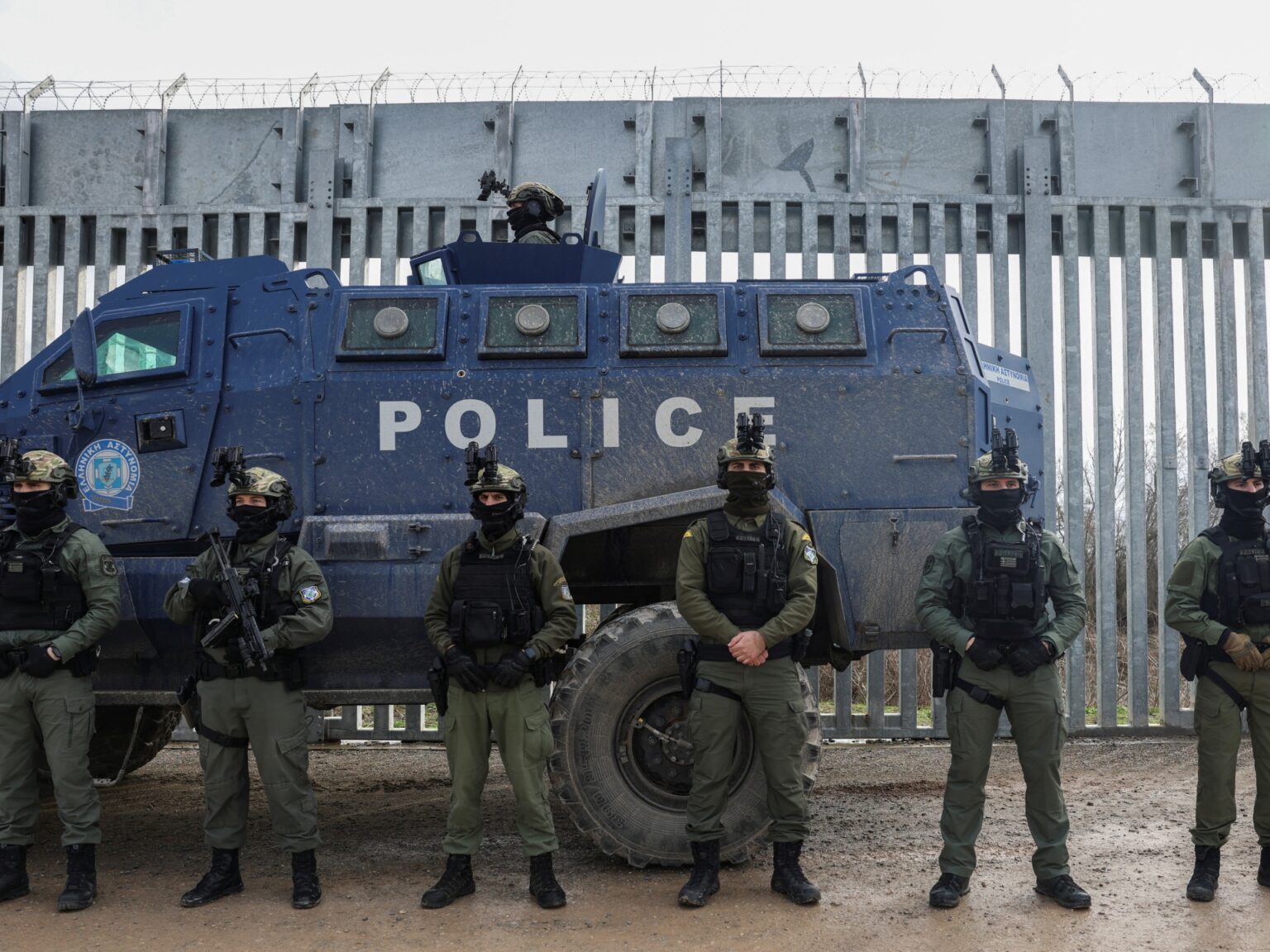Global Courant 2023-05-15 16:13:46
Athens, Greece – When Notis Mitarakis took up the post of migration minister, he was given a baptism of fire.
In January 2020, before being sworn in, Mitarakis visited his constituency of Chios.
There were 100,000 asylum seekers in Greece, half of them living on the five eastern Aegean islands with reception and identification centers, including Chios. On average, almost 10,000 newcomers arrived from Turkey every month.
A crowd of angry islanders greeted him outside city hall, where he was due to attend a special city council meeting on what to do with thousands of refugees who had flooded from the official camp and were living in squats on the beach and in the city.
Mitarakis’ bodyguards led him into the building and tried to close the doors, but the mob pushed them open, shattering the glass.
A few days later it was a similar story in Samos.
“We want them off the island. We don’t want them here,” a woman told Mitarakis as he tried to reason with a mocking congregation.
After that, Mitarakis did not even try to visit Lesbos, the island in the northern Aegean Sea that has received about half of Turkey’s asylum seekers over the past 10 years.
But on May 12 this year, it was a completely different story.
‘Extremely proud’
Mitarakis and Prime Minister Kyriakos Mitsotakis stood on a makeshift podium amid the ruins of Camp Moria on Lesvos, once one of Europe’s largest refugee camps, along with the island’s mayor.
In front of dozens of local dignitaries, the mayor thanked them and presented them with gifts.
“I am extremely proud to have maintained my commitment to local communities to solve this problem,” said Mitsotakis.
“We pursued a firm but fair migration policy. We protected our country’s borders, both on land and at sea, and reduced irregular arrivals by 90 percent. We have proven that the sea has limits, and those limits can and should be guarded,” he said, his last words drowned out by applause.
The mayor of Lesvos presents gifts to Prime Minister Mitsotakis and thanks him for the government’s policy of moving refugees away from the island’s capital, Mytilini (John Psaropoulos/Al Jazeera)
Mitarakis put numbers on that policy.
“During the Syriza government (2015-2019), 643,000 asylum seekers arrived in Lesvos, up from 11,630 since 2019,” he said.
New Democracy’s governing conservatives face a tough reelection on May 21, citing migration policy as one of their strengths.
Greece has a strict border policy. Many humanitarian groups and search and rescue watchdogs have said it involves illegally pushing potential asylum seekers back to sea.
According to the Geneva Convention of 1951, supplicants at the border may not be returned if they seek protection from political or religious persecution.
Greek border guards and coast guards have often not bothered to ask them, critics say.
Beating, detention, theft
Al Jazeera has reported firsthand accounts of beatings, arbitrary detention and theft of personal belongings.
It hadn’t always been that way. Although refugee numbers were manageable, Lesvos was welcoming.
The mayor turned over a summer camp for schoolchildren and a driving school for refugee housing.
A network of volunteers formed during the post-2008 global financial crisis to help hungry Greek families instead collected food, medicine and clothing for refugees.
In 2020, the islands with shelters began to feel like pawns in a political power game between Turkey and the European Union.
As New Democracy gained new asylum applications, applicants who had been waiting for years marched through Lesvos’ capital, Mytilini, fueling a movement among locals to seal off Moria, just 4km away.
The turning point for Greek policy came in March 2020, when Turkey unilaterally withdrew from an agreement with the EU to stop irregular migrants.
Thousands attempted to storm the Greek land border on the Evros River, nearly overwhelming the Greek police.
Security crisis
Greece saw Turkey’s move as a test of its reflexes and henceforth treated refugees more as a security crisis than a humanitarian one.
In September of that year, Moria was set on fire. Police arrested a dozen Afghan refugees on charges of arson, but some islanders suspect locals incited them.
“(Some people) created problems to mobilize others against them. They said these people brought AIDS, brought Ebola, they will sleep with your women. And it worked, and they turned the population against them,” Christos Moumtzis, a jeweler, told Al Jazeera.
“They are trying to assimilate the (migrants) in Greece, to have relationships, children, a mixed situation, a kind of marriage (of populations),” shop owner Thanos Mitropoulos said.
“I see a lot (refugees) with Greek girls, walking hand in hand, in a relationship.”
Many local businesses have benefited from the cash benefits the EU has given to asylum seekers while their applications are being processed, but they have had a souring effect on many.
“I think a lot of them are lazy, they get subsidies and they have learned to live with that. They pose for pictures… They don’t strive for anything more… I opened this store on the other hand, I have to keep it in business,” said Mitropoulos.
About 2,400 refugees remain on Lesvos today, a 10th of the number who lived in Moria, as the government moved most to the mainland and hired more lawyers to handle their asylum applications.
Where camp Moria once stood, the government wants to build a conference center, student accommodation and an innovation center for the University of the Aegean, a music school and a sports center. The summer camp and the driving school have also been returned to the municipality.
The new refugee camp under construction in Vastria, Greece, will house 5,000 people (John Psaropoulos/Al Jazeera)
In their place, the government is building a huge new camp 40 km (25 mi) away in the middle of a pine forest, well out of walking distance from Mytilene.
The camp at Vastria will have better facilities than Moria, or the current makeshift camp set up on an artillery range near Mavrovounio, but it will be surrounded by a guarded double chain link fence with barbed wire on it – all funded by the EU.
Policies on other islands have been similar, with former camps near urban centers turned over to local authorities and replaced with more efficient, remote facilities.
Yet sensitivity to the presence of even the out-of-sight Vastria camp is so great that Mitsotakis did not visit it, apparently because he did not want to draw attention to it.
This government reflects the complete turnaround in European refugee policy in recent years.
It proudly proclaims that during its tenure it prevented 700,000 irregular entries, protected Europe’s open internal borders and abolished the status of these eastern Aegean islands as Europe’s buffer zones.
Not everyone agrees with the new Greek and EU policies.
“We cannot choose between the disgrace of Moria, or the prison of Mavrovounio, or the even worse camp in Vastria,” communist MP Maria Komninaka told Al Jazeera.
“We think people should get their papers quickly and move from the islands to the mainland and from there to the countries they are trying to get to.”








